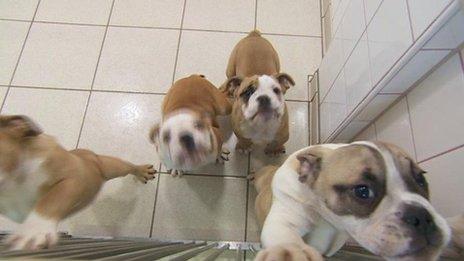Animal welfare: New laws to be introduced by UK government
- Published
- comments
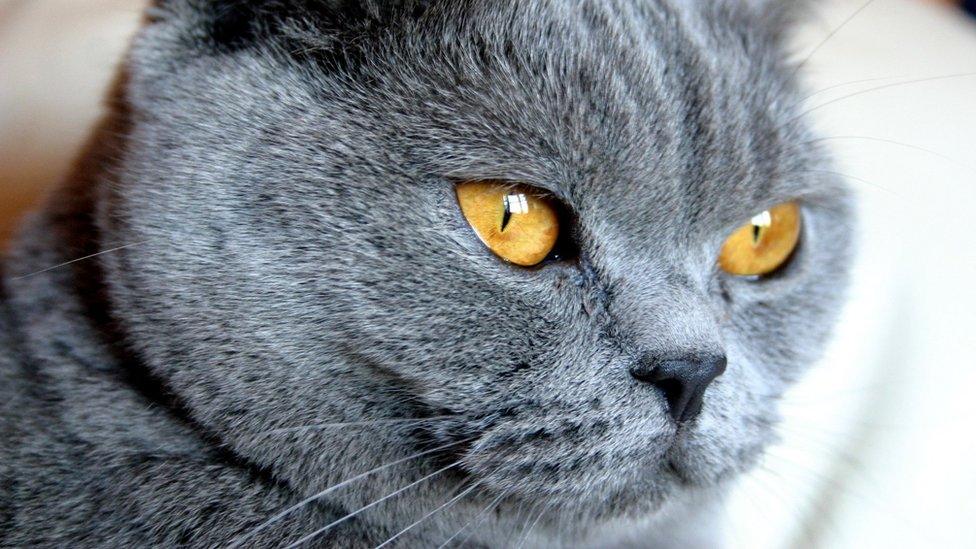
Mandatory microchipping for cats is one of the measures to be put forward in Parliament
The government is introducing a big plan to improve the welfare and safety of some animals.
The animals covered by the proposal include pets, farm animals and creatures in the wild.
Laws to be introduced include improving standards in zoos, compulsory microchipping for cats and a ban on the keeping of primates - such as apes and monkeys - as pets.
The UK government said it wanted to be a "global leader" on animal welfare and set "high standards for others across the world to follow".
The proposals have been welcomed by animal charities, with the RSPCA saying they could make "a real and lasting difference" but the charity also warned the prime minister to make sure the plans were "a success... not a token gesture".
'A nation of animal lovers'
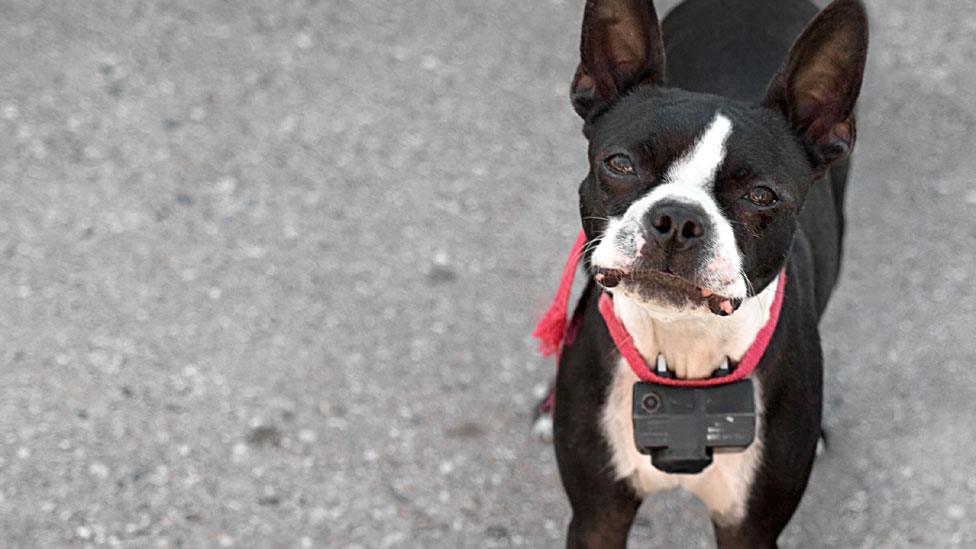
Remote-controlled training collars for dogs will be banned
Launching the Action Plan for Animal Welfare, the Environment Secretary George Eustice called the UK a "nation of animal lovers" and said it would "go further than ever to build on our excellent track record".
Animal welfare is a devolved issue, but Westminster will work with Scotland, Northern Ireland and Wales to discuss the policies for use in those countries too.
Bringing in mandatory cat microchipping and improving the current databases
Improving standards in zoos
Recognising animal sentience - the ability of animals to have feelings, including pain and suffering - in law through the Animal Welfare (Sentience) Bill. It will apply to vertebrates, but not to cephalopods such as octopus and squid
Looking into banning the sale of foie gras - a food made from the livers of force-fed ducks or geese
"Cracking down" on puppy smuggling
The Ivory Act, banning the sale of ivory, will also be implemented
Banning the import of hunting trophies - as well as stopping advertising for the trips to hunt wild animals like elephants.
Compulsory for cats to be microchipped
WATCH: Meet Daniel and his cat Casper to find out how a microchip works
Reacting to the news that owners will have to get their cats microchipped, Jacqui Cuff, head of advocacy and government relations for Cats Protection, said she was "delighted".
"We had the dog microchipping regulation passed in 2016, so we've been waiting a long time. There are around 2.6 million unchipped pet cats in the UK; that's a lot of cats wandering around with no permanent identification," she explained.
Cat theft reportedly increased by more than 12% over the last year, and only around 70% of owned cats are chipped at the moment.
These announcements will make a real and lasting difference to animals' welfare, so we're pleased the Government is committed to improving animals' lives in the UK and abroad.
More protection for farm animals
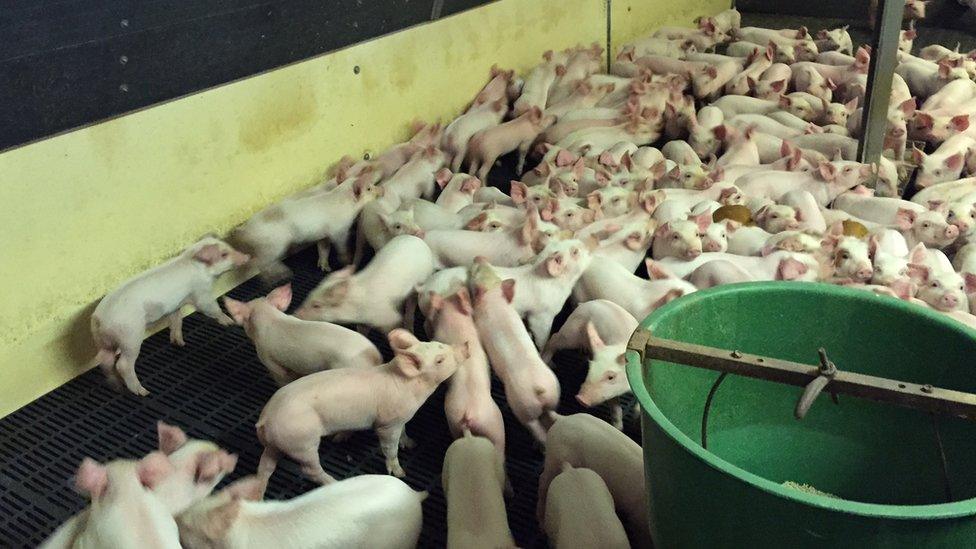
Animals will be legally recognised as feeling pain and hunger, and be aware of what is happening to them
The sale abroad of live animals - such as cows or pigs - for fattening and to be killed will be banned. This is possible because the UK has now left the European Union.
The police will be given more powers to protect farm animals from dangerous or out-of-control dogs.
The caging of poultry, including chickens and turkeys, and the practice of restricting the movement of pigs that are pregnant or have young piglets will also be looked at.
Currently female pigs - called sows - can legally be kept in a "farrowing crate" for up to five weeks. These crates are of a size that prevents the sow from turning around and potentially crushing her new-born piglets.
However, stopping sows from behaving how they would normally in a field, for example, can cause them to become stressed.
What about food coming in?
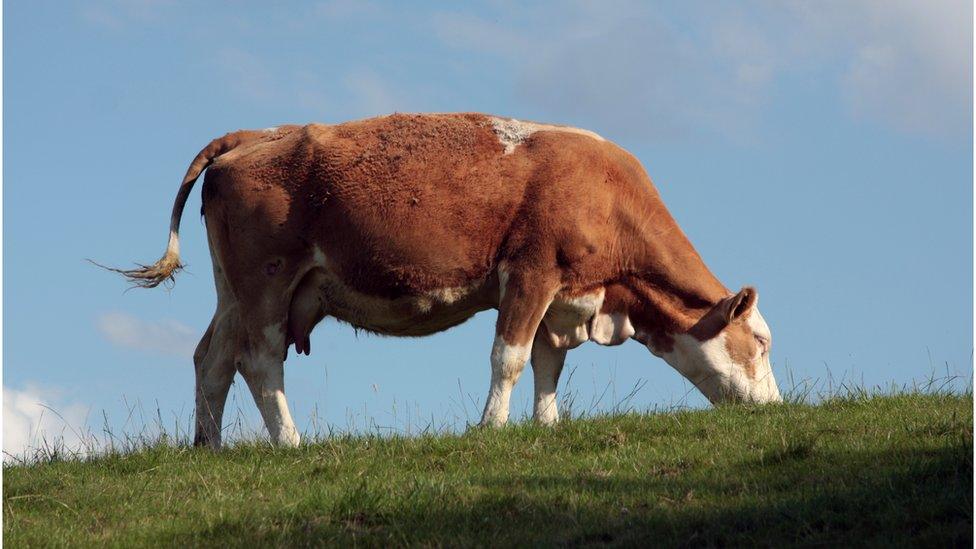
There are concerns imports won't meet existing farm standards
There is, however, no legal guarantee that food from animals raised abroad will have been produced to high animal-welfare standards.
The deputy president of the National Farmers' Union (NFU), Stuart Roberts, said it was "ridiculous" if high standards weren't applied to food bought into the UK from other countries as well.
- Published3 August 2020
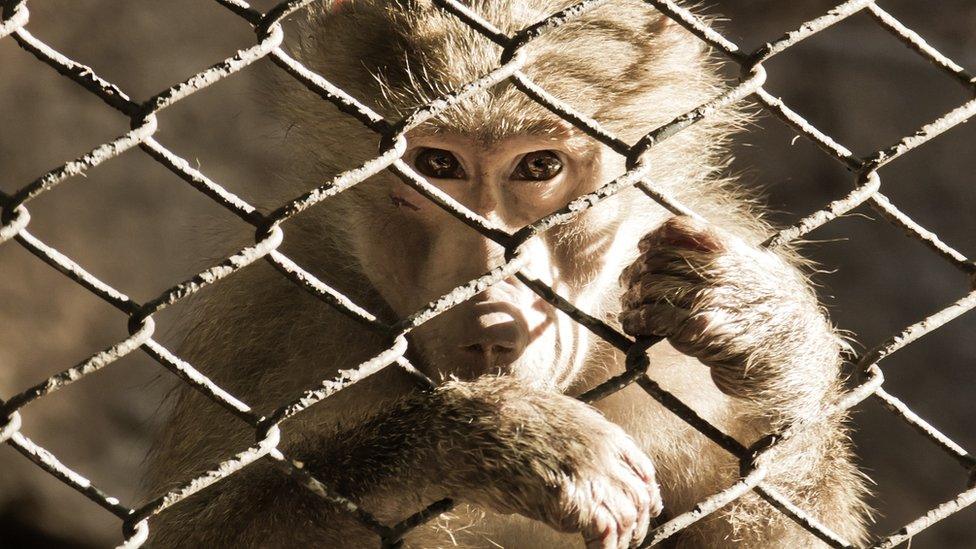
- Published6 February 2020
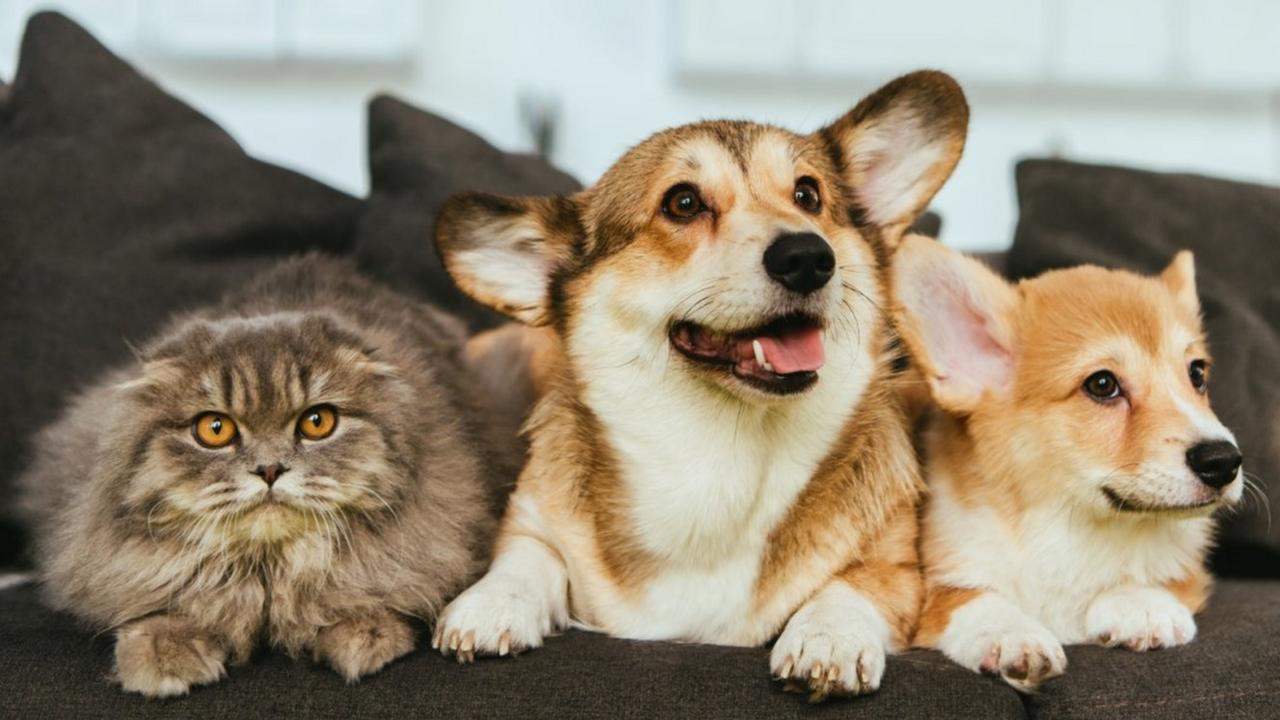
- Published13 May 2019
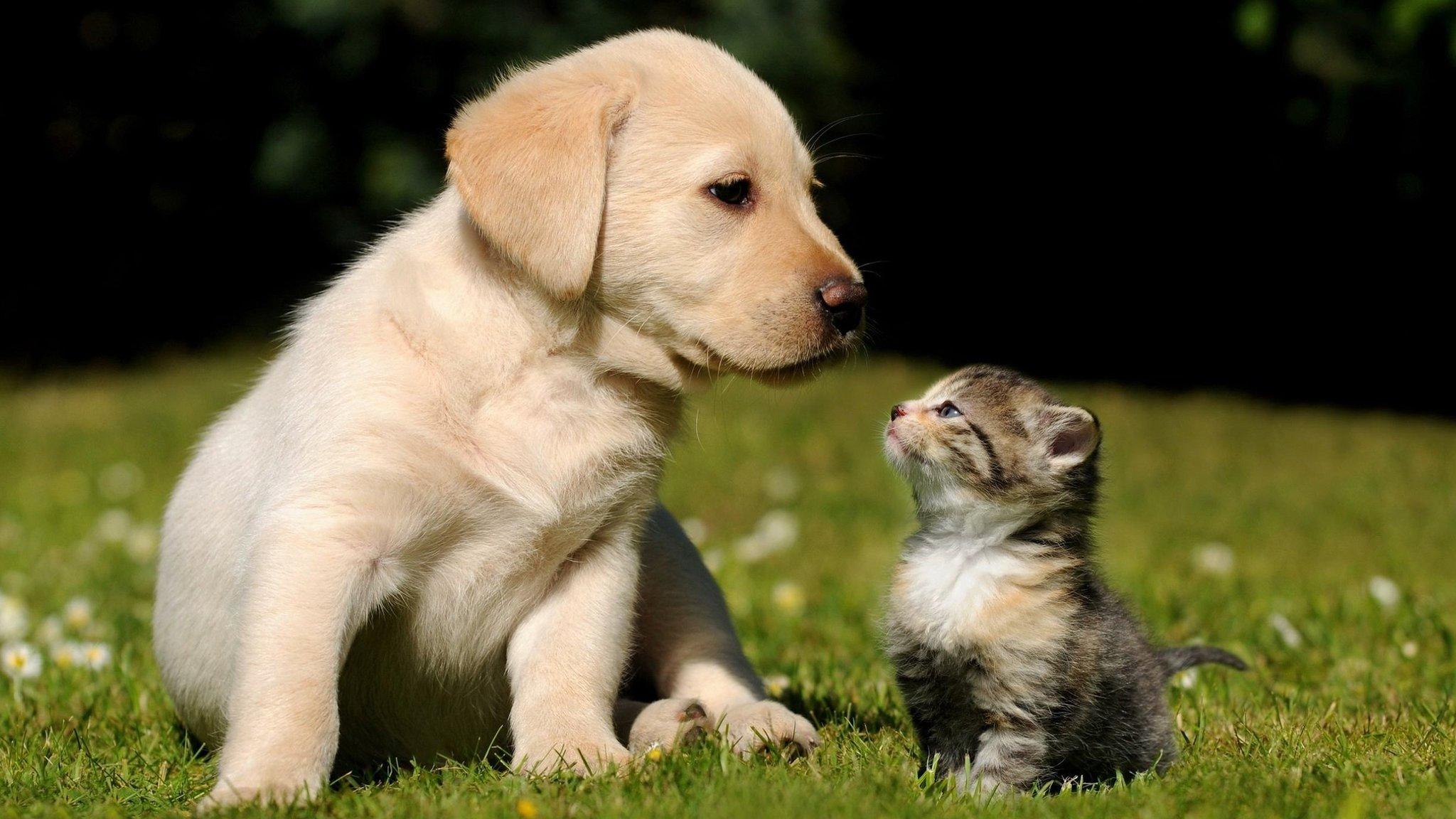
- Published26 June 2019
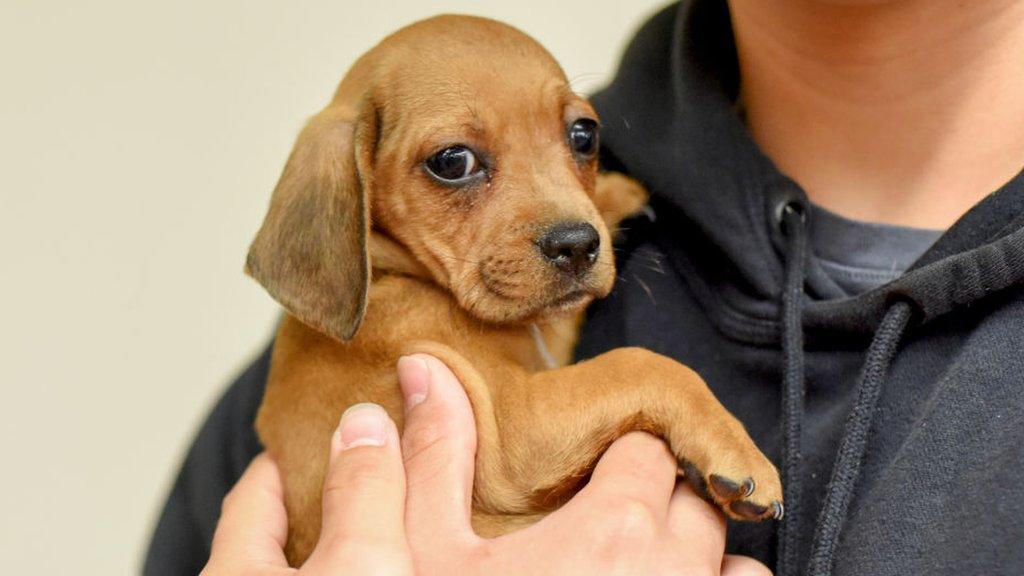
- Published2 May 2019
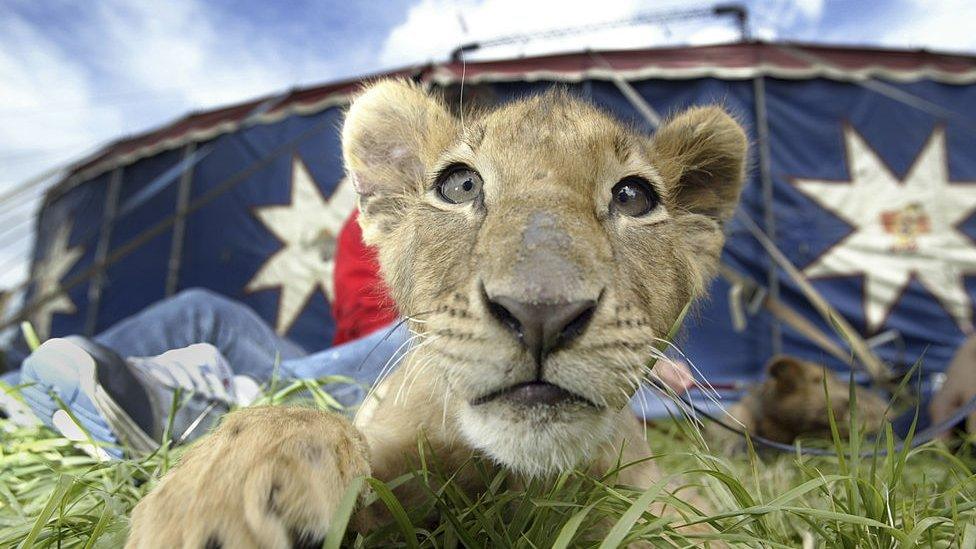
- Published14 February 2017
